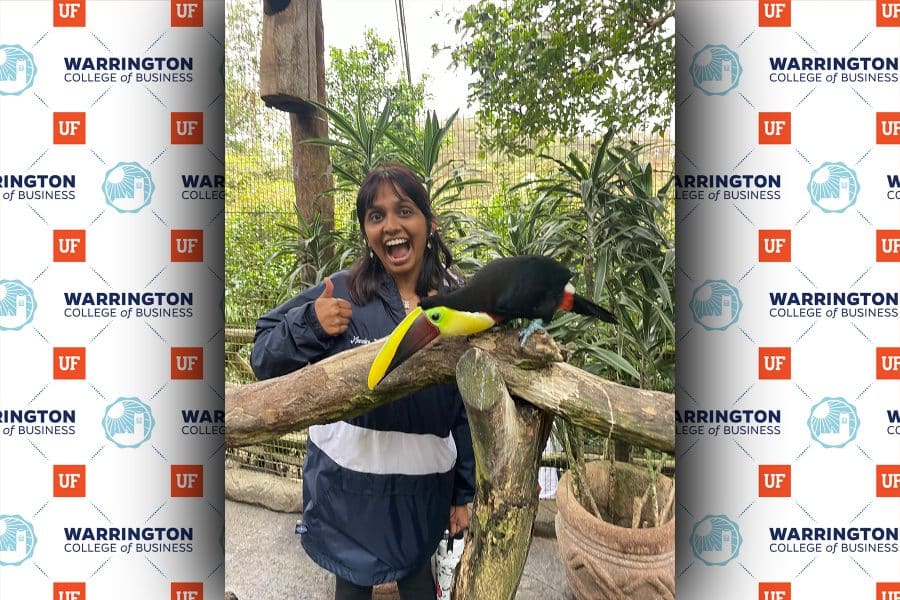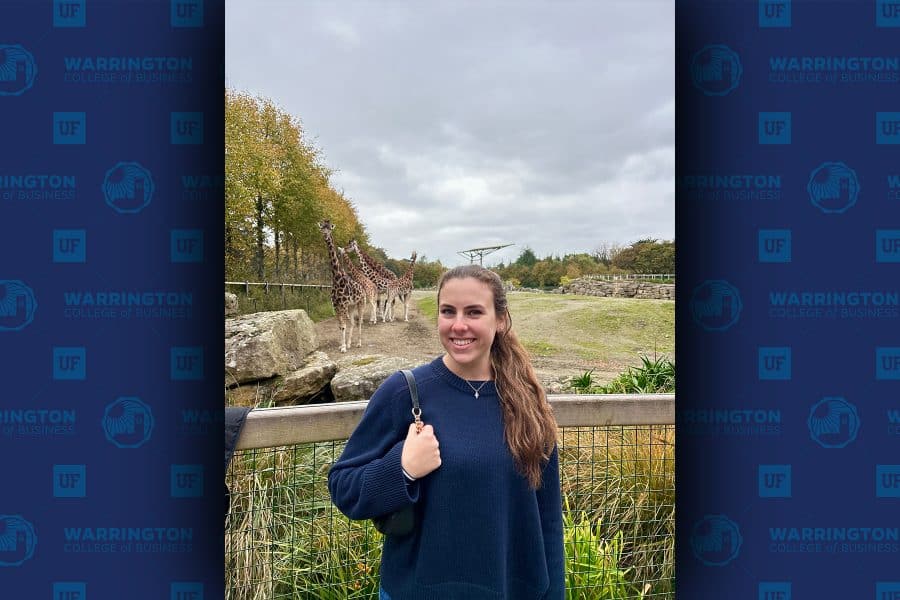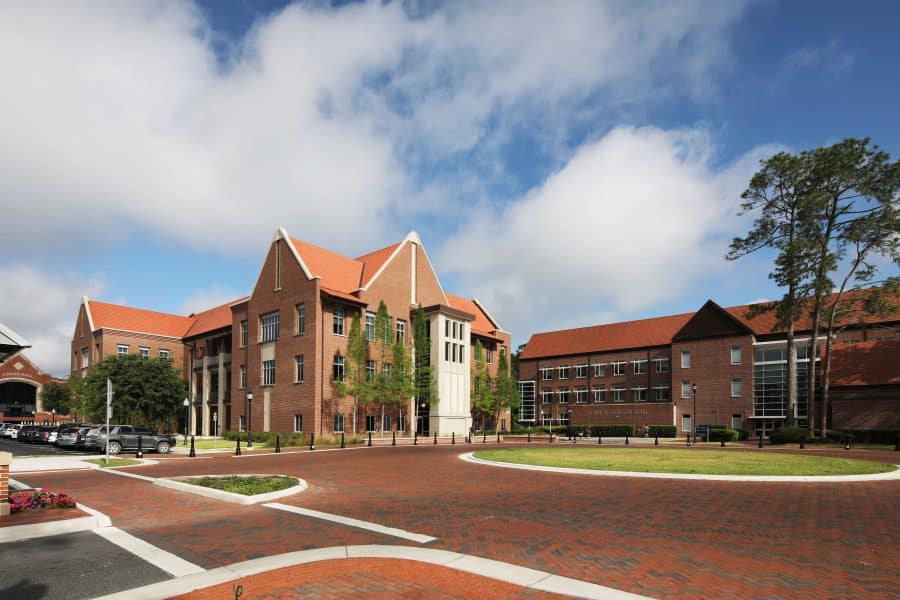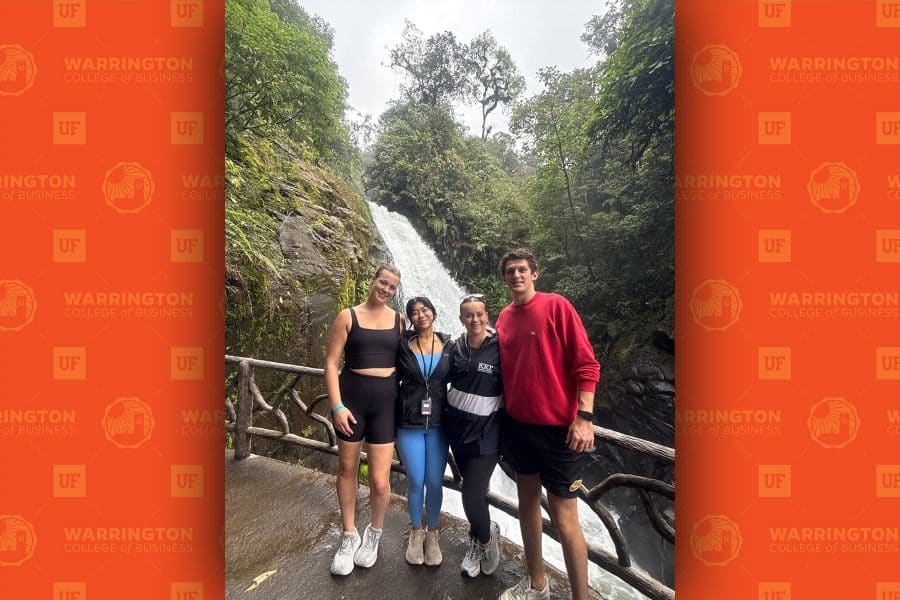
Experiential Learning: Costa Rica – Adonis Giannopoulos
Q: Tell us about your Global Immersion Experience trip.
Giannopoulos: “My GIE trip was in San Jose, Costa Rica. We traveled there for a week and during that time we had the opportunity to visit incredible landmarks, reputable companies and learn from experienced professionals about the country’s business environment. We visited plenty of companies during our time in Costa Rica; the most memorable ones were Starbucks (we went to their Hacienda Alsacia Coffee farm). We did a tour of the farm and tried some locally grown, freshly brewed coffee. Located in the American FTZ that we toured, Databricks was another amazing visit. We had the chance to meet Ariel Vargas, the Director of International Operations, who talked about what it meant to be a leader and how it relates to all aspects of your life, not just business.”
Q: How did this trip enhance your understanding of the culture and business environment of the country you visited?
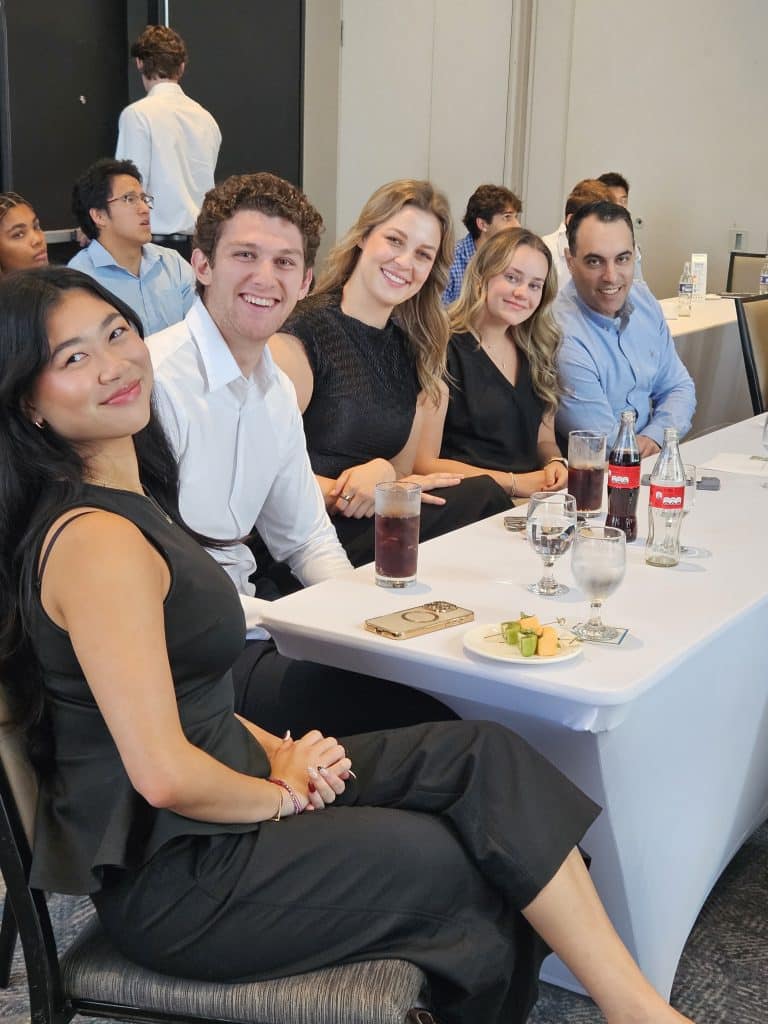
Giannopoulos: “This trip greatly enhanced my understanding of the country’s culture and business environment by allowing me to experience firsthand the ‘pura vida’ lifestyle and its influence on daily life and business practices. I also gained insight into how the nation’s history has shaped its modern priorities, particularly in sustainability initiatives and unique policies such as the tax laws on cars, which reflect a deep commitment to environmental consciousness and long-term social well-being.”
Q: What was the most memorable or impactful experience you had during the trip?
Giannopoulos: “The most memorable and impactful experience I had during the trip was the cultural day. I learned so much about Costa Rica’s rich history and traditions while visiting incredible places, including a volcano and an animal sanctuary. I was especially fascinated to learn how traditions have evolved, such as no longer eating turtle eggs to support conservation. Additionally, exploring Costa Rica’s deep connection to coffee culture was truly amazing. I found it remarkable that the school calendar in Costa Rica historically aligned with the coffee harvest season, reflecting how deeply coffee is woven into the country’s culture and family life.”
Q: Were there any aspects of the trip that challenged your perspective or pushed you outside your comfort zone? How did you navigate those moments?
Giannopoulos: “Several aspects of the trip pushed me outside my comfort zone, particularly adapting to cultural differences in communication and daily life. For example, understanding how ‘pura vida’ is used in different contexts requires careful observation and attention. I navigated these moments by staying open-minded, asking questions and embracing the experience, which deepened my understanding of the culture and people.”
Q: Did the trip alter or reinforce any assumptions you previously had about the country, its people, or its business practices?
Giannopoulos: “The trip challenged many of my previous assumptions about Costa Rica, particularly regarding living conditions and daily life. Experiencing the ‘pura vida’ mindset firsthand gave me a much deeper understanding of the culture, the people and their approach to life and business, as well as their strong commitment to sustainability. We also had to adapt to cultural differences in communication, as people didn’t interact in the same way we might expect in the U.S. For example, the phrase ‘pura vida’ was used in many contexts, sometimes as a greeting, a farewell, or simply to express gratitude, so we often had to consider the context to understand its meaning fully.”
Q: What specific skills, insights, or knowledge did you gain through participating in this program?
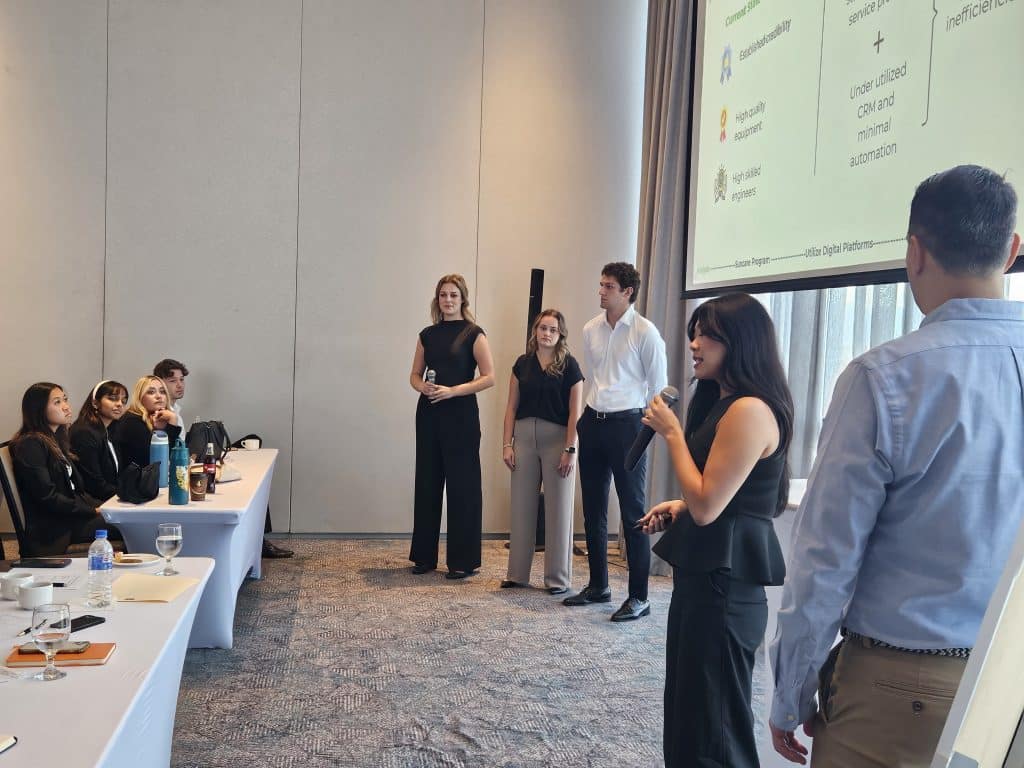
Giannopoulos: “Through participating in this program, I gained valuable skills in working within diverse business environments, presenting and public speaking, problem-solving and teamwork. I also gained insights into how business operates in Costa Rica, including its international trade relations and strategies, despite being a relatively small country. Additionally, I learned about Costa Rica’s leadership in sustainability, which one day might serve as a model for other nations aiming to build functional, future-oriented, sustainable economies. For example, I was also impressed to learn that nearly all of Costa Rica’s electricity, more than 99%, comes from renewable sources, showing a nationwide commitment to clean energy and long-term environmental responsibility. I also observed practical initiatives like incentivized glass bottle recycling, where people receive monetary rewards for returning bottles to points of purchase, demonstrating how small policies can drive meaningful environmental impact.”
Q: How do you see this experience influencing your future studies or career goals?
Giannopoulos: “As someone for whom career paths have always felt like a gray area, this experience provided much-needed clarity. Working on a consulting project for a company showed me how well this type of work aligns with my skills and style, prompting me to focus more on pursuing consulting roles in the future.”
Related stories
For the media
Looking for an expert or have an inquiry?
Submit your news
Contact us
Follow us on social
@ufwarrington | #BusinessGators
